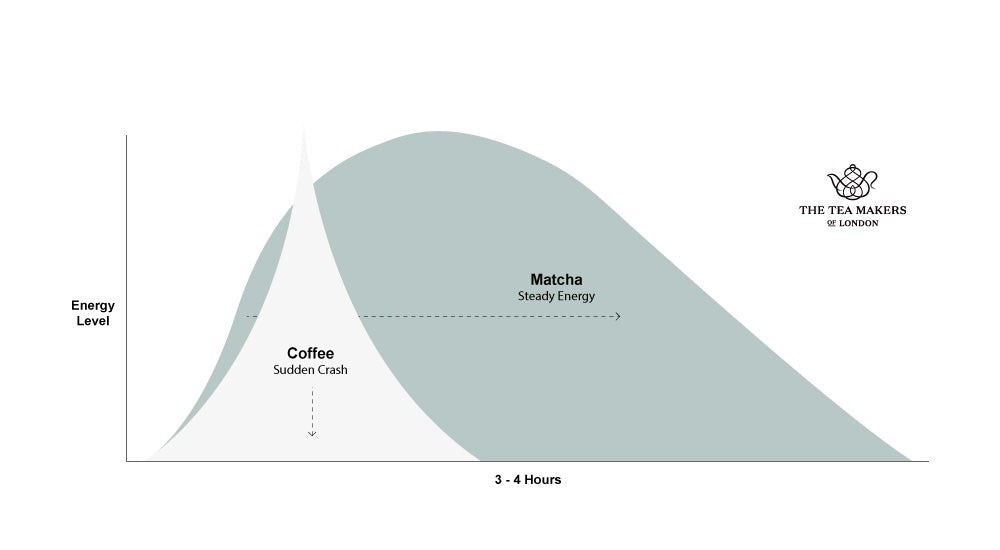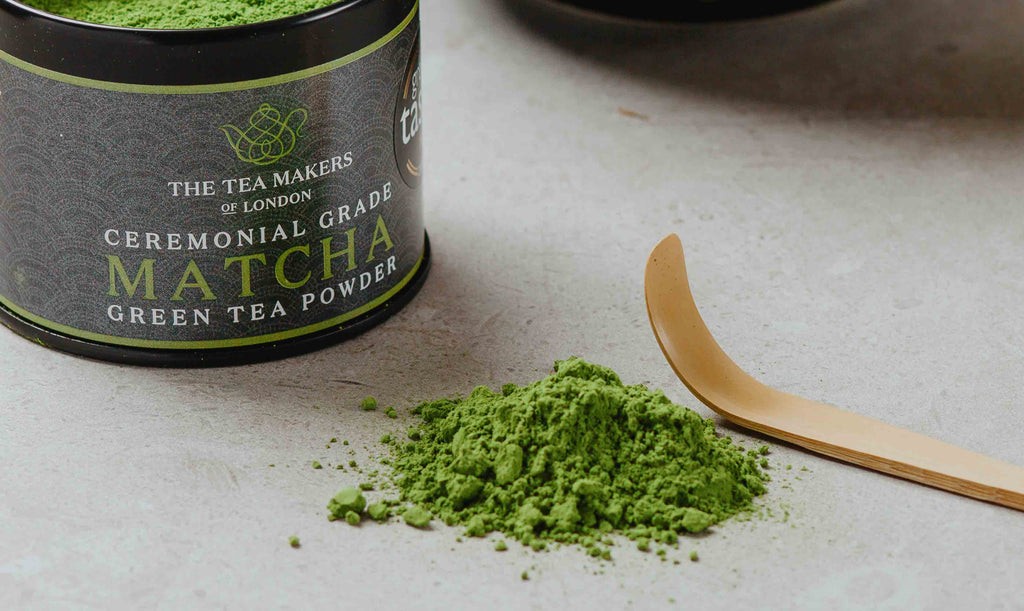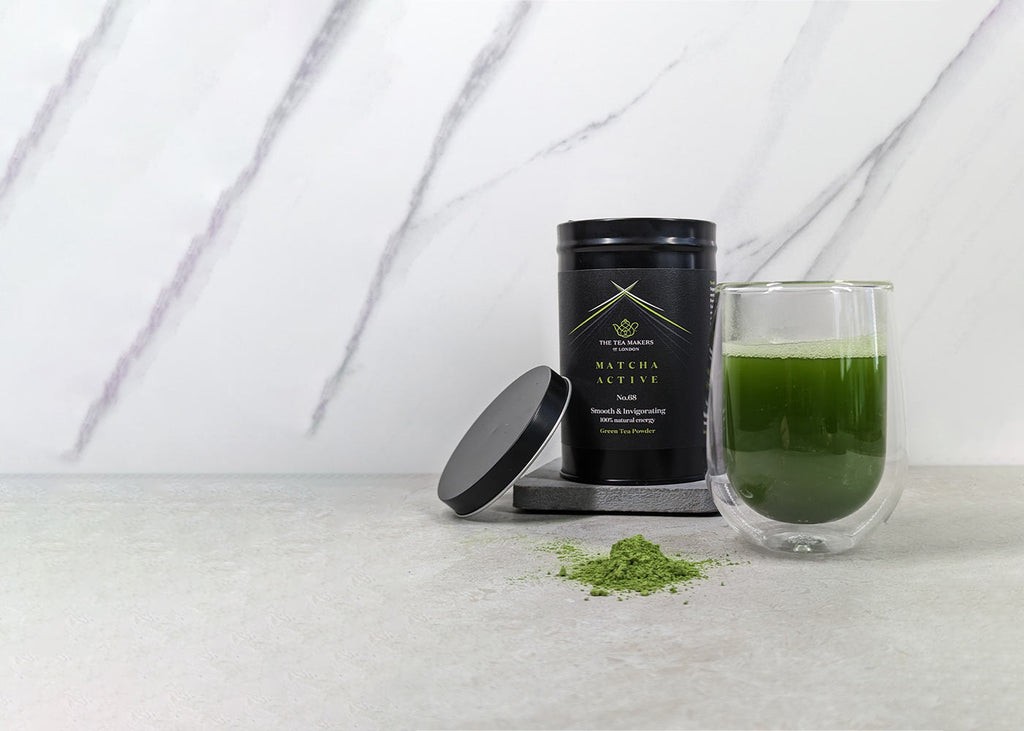Matcha compared to coffee, which one gives you the better caffeine kick? At COMPARE.EDU.VN, we break down the caffeine content, health benefits, and energy release of these two popular beverages to help you make an informed decision. Discover whether matcha or coffee is the right choice for your lifestyle, focusing on sustained energy, antioxidants, and overall wellness.
1. What is Matcha and How Does It Differ From Coffee?
Matcha is a finely ground powder made from specially grown and processed green tea leaves. Originating from Japan, matcha is unique because you consume the entire leaf, unlike traditional tea infusions where you steep the leaves and discard them. This difference significantly impacts the caffeine content and health benefits compared to coffee.
1.1 What Are the Origins of Matcha?
Matcha has deep roots in Japanese culture, dating back to the 12th century when Zen Buddhist monks used it to enhance focus during meditation. Today, matcha is enjoyed worldwide for its unique flavor and health properties.
1.2 How Does Matcha Differ From Regular Green Tea?
The key difference lies in the cultivation and preparation. Matcha plants are shade-grown for several weeks before harvest, increasing chlorophyll and amino acid levels. This process gives matcha its vibrant green color and rich flavor. Additionally, because you ingest the entire leaf, you receive a higher concentration of nutrients and caffeine than you would from steeped green tea.
Alt text: Vibrant green matcha powder, showcasing its fine texture and rich color.
1.3 What Are the Key Ingredients in Matcha?
Matcha’s primary ingredient is the green tea leaf, which is rich in:
- Antioxidants: Especially catechins, like EGCG (epigallocatechin gallate).
- Amino Acids: Notably L-Theanine, which promotes relaxation and focus.
- Caffeine: A moderate amount that provides sustained energy.
- Vitamins and Minerals: Including Vitamin C, selenium, chromium, zinc, and magnesium.
2. How Much Caffeine is in Matcha Compared to Coffee?
Matcha typically contains less caffeine than coffee, but the effects can be quite different. A standard cup of matcha (1-2 grams of powder) has about 70mg of caffeine, while a cup of coffee can range from 95mg to 200mg or more, depending on the brewing method and type of coffee beans.
2.1 Understanding Caffeine Levels in Matcha
The caffeine content in matcha can vary depending on the grade and preparation method. Ceremonial grade matcha, used in traditional tea ceremonies, tends to have a slightly lower caffeine content compared to culinary grade matcha.
2.2 Understanding Caffeine Levels in Coffee
Coffee’s caffeine content is influenced by factors like the type of bean (Arabica vs. Robusta), roasting process, and brewing method. Espresso, for example, has a higher concentration of caffeine compared to drip coffee.
2.3 Matcha vs. Coffee Caffeine Comparison Table
| Beverage | Caffeine Content (per 8oz serving) |
|---|---|
| Matcha | 70mg |
| Coffee (Drip) | 95-200mg |
| Coffee (Espresso) | 63mg (per shot, typically 1oz) |




2.4 How Does Caffeine Affect Your Body?
Caffeine is a stimulant that affects the central nervous system, providing alertness and reducing fatigue. However, it can also cause side effects like anxiety, insomnia, and increased heart rate, especially in sensitive individuals.
3. What are the Energy Effects of Matcha vs. Coffee?
One of the key differences between matcha and coffee is the way caffeine is released and metabolized in the body. Matcha provides a more sustained and balanced energy boost, while coffee often leads to a rapid spike followed by a crash.
3.1 The Matcha Energy Experience: Sustained Release
Matcha contains L-Theanine, an amino acid that promotes relaxation and counteracts some of the stimulating effects of caffeine. L-Theanine slows down the absorption of caffeine, providing a longer-lasting energy boost without the jitters or crash commonly associated with coffee.
3.2 The Coffee Energy Experience: Spike and Crash
Coffee’s caffeine is absorbed quickly, leading to a rapid increase in energy and alertness. However, this is often followed by a sharp decline, leaving you feeling tired and drained. This “crash” is due to the rapid rise and fall of blood sugar levels and adrenaline.
3.3 Comparing the Energy Curves of Matcha and Coffee
Imagine a graph where the Y-axis represents energy levels and the X-axis represents time. Coffee’s energy curve would show a steep climb followed by a sharp drop, while matcha’s curve would show a gradual increase and a slow, gentle decline.
Alt text: A visual depiction of energy curves, showing the steep spike and crash of coffee versus the gradual rise and sustained energy of matcha.
4. What Are The Health Benefits of Matcha Over Coffee?
Matcha offers a range of health benefits that coffee simply can’t match, largely due to its high antioxidant content and unique amino acid profile.
4.1 Antioxidant Powerhouse: Why Matcha Excels
Matcha is packed with antioxidants, particularly catechins like EGCG, which are known for their anti-inflammatory and anti-cancer properties. These antioxidants help protect your body against free radicals and oxidative stress.
4.2 The Role of L-Theanine in Matcha’s Benefits
L-Theanine in matcha promotes relaxation, reduces anxiety, and improves focus. This amino acid works synergistically with caffeine to provide a calm, alert state of mind, making matcha an excellent choice for enhancing cognitive function.
4.3 Other Health Benefits of Matcha
- Improved Heart Health: Matcha may help lower cholesterol and blood pressure.
- Enhanced Liver Function: Some studies suggest matcha can protect against liver damage.
- Weight Management: Matcha may boost metabolism and promote fat burning.
- Oral Health: Matcha can fight bacteria in the mouth, reducing plaque and improving gum health.
4.4 Potential Health Benefits of Coffee
- Improved Mental Alertness: Caffeine in coffee can enhance cognitive function and focus.
- Reduced Risk of Certain Diseases: Coffee consumption has been linked to a lower risk of Parkinson’s disease, type 2 diabetes, and liver disease.
4.5 Comparing the Health Benefits of Matcha and Coffee
| Benefit | Matcha | Coffee |
|---|---|---|
| Antioxidants | Very High (EGCG) | Low |
| Energy | Sustained, Balanced | Rapid Spike and Crash |
| Mental Clarity | Enhanced Focus, Reduced Anxiety | Improved Alertness |
| Heart Health | May Lower Cholesterol and Blood Pressure | May Reduce Risk of Heart Failure |
| Liver Health | May Protect Against Liver Damage | May Reduce Risk of Liver Disease |
| Weight Management | May Boost Metabolism and Fat Burning | Can Suppress Appetite |
| Oral Health | Fights Bacteria, Reduces Plaque | Can Stain Teeth |
5. How Does Matcha Help Calm Your Nerves Compared to Coffee?
One of the significant advantages of matcha over coffee is its ability to promote calmness and reduce anxiety, thanks to the presence of L-Theanine.
5.1 The Calming Effect of L-Theanine
L-Theanine is an amino acid known for its calming and anti-anxiety effects. It increases alpha brain wave activity, which is associated with relaxation and a meditative state.
5.2 Coffee and Anxiety: Why Coffee Can Worsen Nerves
Coffee, on the other hand, can exacerbate anxiety due to its high caffeine content. Caffeine can stimulate the release of stress hormones like cortisol and adrenaline, leading to increased heart rate, nervousness, and feelings of unease.
5.3 Matcha for Meditation and Focus
Historically, Buddhist monks have used matcha to enhance focus and promote a calm, alert state of mind during meditation. The combination of L-Theanine and caffeine in matcha makes it an ideal beverage for mental clarity and relaxation.
6. Is Matcha Addictive Like Coffee?
While both matcha and coffee contain caffeine, matcha is generally considered less addictive due to the way its caffeine is released and metabolized.
6.1 Understanding Caffeine Withdrawal Symptoms
Caffeine withdrawal can cause symptoms like headaches, fatigue, irritability, and difficulty concentrating. These symptoms are often more pronounced with coffee due to its rapid caffeine release.
6.2 Why Matcha is Less Likely to Cause Addiction
The slow, sustained release of caffeine in matcha, combined with the calming effects of L-Theanine, reduces the likelihood of dependence and withdrawal symptoms. This makes matcha a gentler and more sustainable source of energy.
6.3 Tips for Reducing Caffeine Dependence
- Gradually Reduce Intake: If you’re trying to cut back on caffeine, do so gradually to minimize withdrawal symptoms.
- Stay Hydrated: Drink plenty of water to help flush out caffeine and reduce headaches.
- Get Enough Sleep: Prioritize sleep to combat fatigue and reduce the urge for caffeine.
- Explore Alternatives: Consider herbal teas or other caffeine-free beverages.
7. How Does Matcha Affect Your Teeth Compared to Coffee?
Matcha offers dental benefits that coffee simply can’t provide. While coffee is known for staining teeth and contributing to bad breath, matcha can actually improve oral health.
7.1 Matcha’s Benefits for Oral Health
The antioxidants in matcha fight bacteria in the mouth, reducing plaque buildup and preventing gum disease. Matcha can also freshen breath and promote overall oral hygiene.
7.2 The Staining Effects of Coffee on Teeth
Coffee contains tannins, which can stain teeth over time. Additionally, coffee’s acidity can erode tooth enamel, making teeth more susceptible to staining and decay.
7.3 Tips for Maintaining Oral Health While Consuming Coffee or Matcha
- Drink Water: Rinse your mouth with water after consuming coffee or matcha to reduce staining and acidity.
- Brush Regularly: Brush your teeth at least twice a day to remove plaque and prevent staining.
- Use a Straw: Drinking coffee or matcha through a straw can minimize contact with your teeth.
- Consider Whitening Treatments: If you’re concerned about teeth staining, consider using whitening toothpaste or professional whitening treatments.
8. Can Matcha Help With Weight Loss Like Some Claim About Coffee?
Matcha has been shown to support weight loss efforts through several mechanisms, including boosting metabolism and promoting fat burning.
8.1 Matcha and Metabolism: How Matcha Boosts Fat Burning
Studies have found that matcha can increase metabolism by up to 40%, making it easier for your body to burn calories and lose weight. The catechins in matcha, particularly EGCG, play a key role in this process.
8.2 Coffee and Weight Management: What The Studies Say
Coffee can also aid in weight management by suppressing appetite and increasing energy expenditure. However, these effects are often less pronounced and sustainable compared to matcha.
8.3 Combining Matcha and Exercise for Optimal Weight Loss
Consuming matcha before workouts can enhance fat burning and improve endurance, making it a valuable addition to your fitness routine.
Alt text: Matcha-infused ice cream, showcasing a delicious and innovative way to enjoy the health benefits of matcha.
9. How Easy is it to Prepare Matcha vs. Coffee?
Matcha is incredibly easy to prepare and requires minimal equipment, making it a convenient and accessible beverage option.
9.1 The Simplicity of Matcha Preparation
To make matcha, simply whisk matcha powder into hot water using a bamboo whisk (chasen) until it forms a frothy consistency. For a matcha latte, mix the powder with steamed milk.
9.2 The Complexity of Coffee Brewing
Coffee brewing can be more complex, requiring equipment like an espresso machine, grinder, and scale. Achieving the perfect cup of coffee often involves precise measurements and techniques.
9.3 Step-by-Step Guide to Making Matcha
- Gather Your Supplies: Matcha powder, hot water (around 175°F), a matcha bowl (chawan), and a bamboo whisk (chasen).
- Warm the Bowl: Pour hot water into the matcha bowl to warm it, then discard the water.
- Add Matcha: Sift 1-2 grams of matcha powder into the bowl.
- Add Water: Pour in about 2-3 ounces of hot water.
- Whisk: Use the bamboo whisk to vigorously whisk the matcha in a “W” or “M” motion until it forms a frothy layer.
- Enjoy: Sip the matcha directly from the bowl.
10. How Do I Get Started With Matcha?
Getting started with matcha is easy and rewarding. With the right tools and knowledge, you can enjoy the many health benefits and unique flavor of this traditional Japanese beverage.
10.1 Essential Tools and Equipment for Making Matcha
- Matcha Powder: Choose high-quality matcha powder, preferably ceremonial grade.
- Matcha Bowl (Chawan): A wide, shallow bowl designed for whisking matcha.
- Bamboo Whisk (Chasen): A traditional whisk made from bamboo, used to create a frothy texture.
- Sifter: To remove clumps from the matcha powder.
10.2 Choosing the Right Matcha Grade
- Ceremonial Grade: The highest quality matcha, used in traditional tea ceremonies. It has a smooth, sweet flavor and vibrant green color.
- Culinary Grade: Suitable for cooking and baking, with a slightly more bitter flavor.
10.3 Exploring Different Matcha Blends
Experiment with different matcha blends to find your favorite flavor profile. Some blends are sweeter and more delicate, while others are bolder and more robust.
10.4 Tips for Storing Matcha
Store matcha in an airtight container in a cool, dark place to preserve its freshness and flavor. Avoid exposure to light, heat, and moisture.
Alt text: A complete matcha set, including a whisk, bowl, and high-quality matcha powder, perfect for beginners.
11. Frequently Asked Questions (FAQ) About Matcha and Coffee
11.1 Is Matcha Better Than Coffee For Anxiety?
Yes, matcha is generally better for anxiety due to the presence of L-Theanine, which promotes relaxation and counteracts the stimulating effects of caffeine.
11.2 Can Matcha Replace Coffee?
Yes, matcha can be a great alternative to coffee, providing sustained energy without the jitters or crash.
11.3 How Many Cups Of Matcha Can I Drink A Day?
It is generally safe to consume 2-3 cups of matcha per day.
11.4 Does Matcha Stain Teeth?
No, matcha is less likely to stain teeth compared to coffee. In fact, it may even improve oral health.
11.5 Is Matcha Good For Weight Loss?
Yes, matcha can support weight loss by boosting metabolism and promoting fat burning.
11.6 What Does Matcha Taste Like?
Matcha has a unique, earthy flavor with a hint of sweetness and a slightly grassy taste.
11.7 How Much Caffeine Is Too Much?
The recommended daily caffeine intake is up to 400mg.
11.8 Can Matcha Cause Insomnia?
While matcha contains caffeine, the presence of L-Theanine can help promote relaxation and reduce the risk of insomnia.
11.9 What Are The Side Effects Of Drinking Too Much Matcha?
Consuming too much matcha can cause side effects like nervousness, irritability, and digestive issues.
11.10 Is Matcha Safe For Pregnant Women?
Pregnant women should consult with their healthcare provider before consuming matcha, as caffeine intake should be limited during pregnancy.
Choosing between matcha and coffee depends on your individual preferences and health goals. If you’re looking for sustained energy, antioxidant benefits, and a calming effect, matcha may be the better choice. On the other hand, if you prefer a quick energy boost and enjoy the bold flavor of coffee, it may be your go-to beverage. At COMPARE.EDU.VN, we aim to provide you with the information you need to make informed decisions about your health and wellness.
Ready to explore more comparisons and make confident choices? Visit COMPARE.EDU.VN today! Our comprehensive comparisons and expert insights can help you navigate the world of options and find the perfect fit for your needs. Don’t just choose, COMPARE.
Contact us:
Address: 333 Comparison Plaza, Choice City, CA 90210, United States
Whatsapp: +1 (626) 555-9090
Website: compare.edu.vn